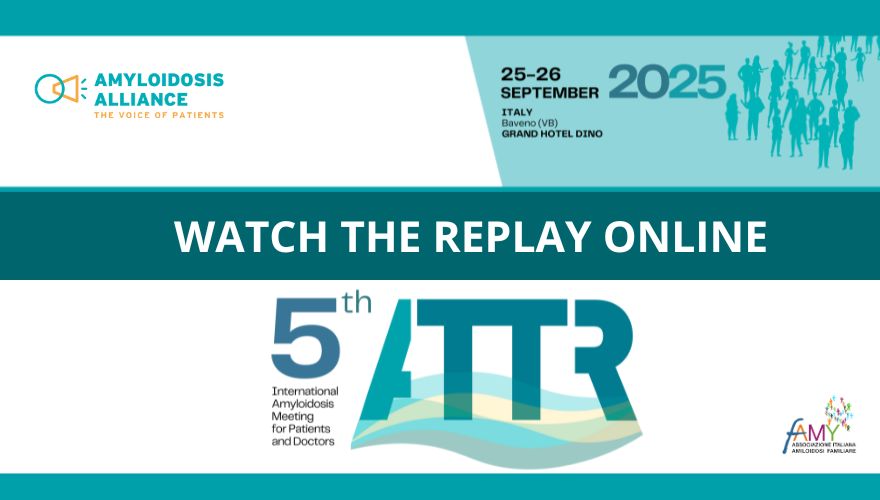Watch ATTR Amyloidosis meeting replay, Baveno, Italy
The ATTR Amyloidosis meeting replay 2025 held in Baveno, Italy, is now available.
This year’s ATTR Meeting took place in Baveno, Italy, bringing together clinicians, researchers, patient organizations, and international experts to discuss the latest developments in transthyretin amyloidosis (ATTR). Known for its high-level scientific content and multidisciplinary exchanges, the event offered an in-depth overview of current research, emerging treatments, and evolving clinical practices.
To ensure that all interested audiences can benefit from the sessions, the full replay is now available online.
Patients channel: open access
The Patients Channel provides sessions designed for patients, families, and caregivers who wish to better understand ATTR.
This section includes:
clear and accessible explanations of the different forms of transthyretin amyloidosis;
patient stories and experience-sharing sessions;
practical discussions on diagnosis, daily life, and care pathways;
Q&A and educational segments with healthcare professionals.
These videos are freely accessible to everyone.
More advanced, clinically focused presentations are grouped in the Doctors Channel, available exclusively through a private link.
This includes:
in-depth scientific lectures;
updates on basic and clinical research;
expert insights on current and upcoming therapeutic strategies;
discussions on best practices, guidelines, and case management.
Healthcare professionals must use the private link provided to access this content. To access the link you can contact Emmanuel, our project manager at : emmanuel.jammes@amyloidosisalliance.org
Stay up to date with the most recent findings in ATTR.
Deepen your understanding of diagnostic challenges and treatment innovations.
Share educational content with patients, families, or medical teams.
Revisit key lectures and expert discussions from Baveno’s international speakers.


